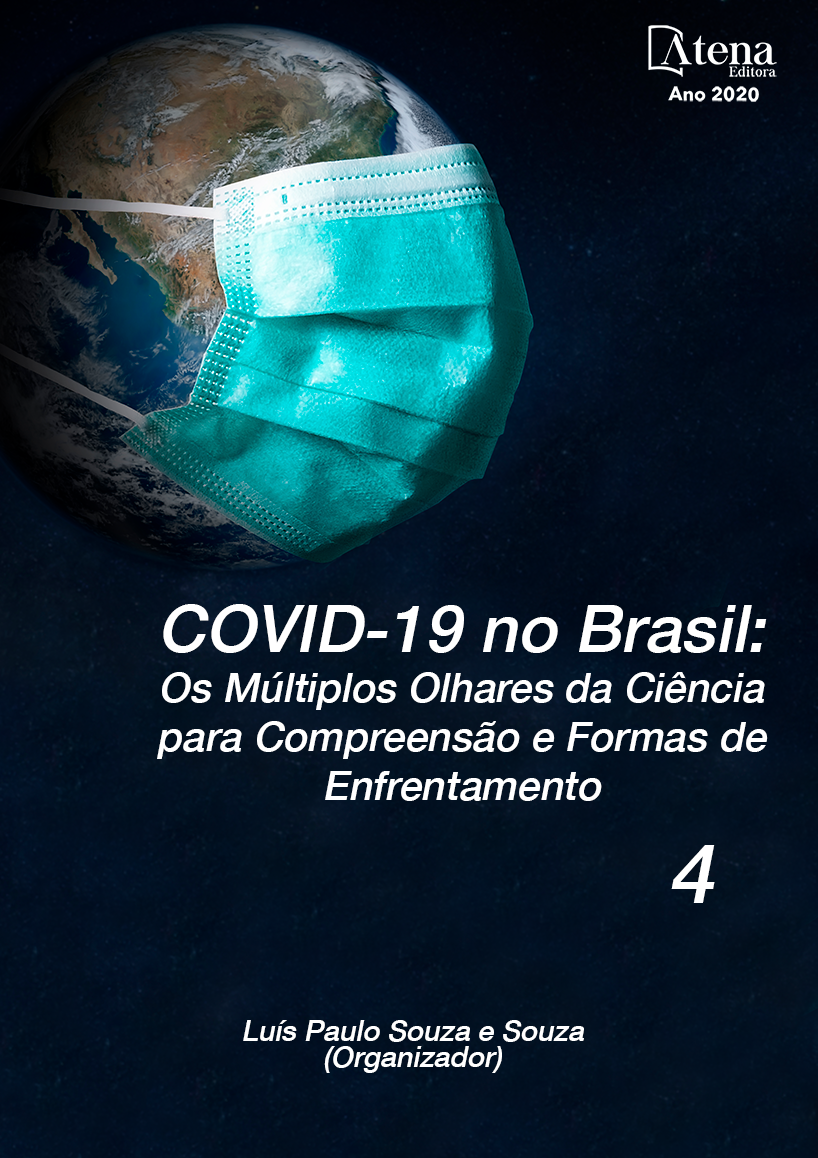
LEVANTAMENTO DO IMPACTO DO COVID-19 SOBRE ACOMETIMENTOS HEPÁTICOS PRÉ-EXISTENTES E ANÁLISE DAS REPERCUSSÕES FUTURAS
Introdução: A pandemia de COVID-19 modificou o estilo de vida e o cotidiano, trazendo incógnitas para o hoje e o amanhã, despertando reflexões no planejamento das condutas futuras. O acometimento sistêmico do Sars-CoV-2 desponta preocupação, sobretudo quando relacionado ao alarmante perfil do homem ou mulher idosos, obesos, diabéticos e hipertensos e sua influência nos comprometimentos hepáticos. Objetivo: Desenvolver uma revisão integrativa narrativa do impacto do COVID-19 e sua repercussão futura sobre as doenças hepáticas nas circunstâncias do etilismo, ganho de peso, diabetes Mellitus tipo 2, hipertensão arterial sistêmica e envelhecimento. Metodologia: Os artigos científicos foram extraídos dos bancos de dados: Periódicos CAPES, Google Scholar, BVS/MEDLINE e PubMed. Priorizou-se literatura dos últimos 10 anos sem restrição de língua que incluísse termos (DeCS/MeSH): liver; weight gain; diabetes mellitus; alcoholism; hypertension; aging; COVID-19. Resultados e discussão: A doença hepática mais comum identificada, Doença Hepática Gordurosa Associada à Disfunção Metabólica (MAFLD), possui como base os componentes da Síndrome Metabólica. A diabetes Mellitus tipo 2 e a obesidade são fatores predisponentes para a MAFLD e outras patologias hepáticas, correspondendo também a fatores de risco para a infecção grave de COVID-19. O etilismo está intrinsecamente relacionado às patologias hepáticas. Não obstante, o envelhecimento foi associado nessa vertente, revelando alterações morfofuncionais dos hepatócitos. Ademais, há evidências de implicações nas enzimas hepáticas de infectados que mostram comprometimento hepático precocemente alertados, mesmo que o impacto direto do vírus no fígado seja pouco esclarecido. Conclusão: A revisão narrativa evidenciou uma ressignificação socio-estrutural desencadeada pelo isolamento social e a pandemia; houve aumento de comportamentos de risco para as doenças hepáticas como: alimentação irregular; sedentarismo; estresse psicológico; tabagismo e etilismo, implicando pior prognóstico da infecção viral e acometimento hepático em patologias associadas ao ganho de peso, diabetes Mellitus tipo 2, hipertensão arterial sistêmica e ao envelhecimento.
LEVANTAMENTO DO IMPACTO DO COVID-19 SOBRE ACOMETIMENTOS HEPÁTICOS PRÉ-EXISTENTES E ANÁLISE DAS REPERCUSSÕES FUTURAS
-
DOI: 10.22533/at.ed.56020081220
-
Palavras-chave: Comportamento de Risco à Saúde; COVID-19; Estilo de Vida; Fígado; Hepatopatias.
-
Keywords: Health Risk Behaviors; COVID-19; Life Style; Liver; Liver Diseases.
-
Abstract:
Introduction: The COVID-19 pandemic transformed the daily life and lifestyle of people, bringing forward the unknown and arousing new reflections for the outlining of future behaviors. The systemic nature of the Sars-CoV-2 infection prompts concern, especially related to the alarming profile of elderly, obese, diabetic, and hypertensive men or women, and its influence on hepatic aggravations. Objective: To develop an integrative and narrative review on the impacts of COVID-19 and its future repercussions on hepatic diseases, in the context of alcoholism, weight gain, diabetes Mellitus type 2, systemic arterial hypertension, and aging. Methodology: The scientific articles were gathered from the databases: Periódicos CAPES, Google Scholar, BVS/MEDLINE, and PubMed. As criteria, we prioritized literature from the last 10 years, with no language restriction, that contained the following terms (accordingly to DeCS/MeSH): liver, weight gain, diabetes mellitus, alcoholism, hypertension, aging, COVID-19. Results and discussion: The most commonly identified disease, the Metabolic Dysfunction Associated Fatty Liver Disease (MAFLD), has components of the Metabolic Syndrome as common manifestations. Diabetes Mellitus type 2 and obesity are major predisposing factors for the development of MAFLD and other hepatic pathologies, as well as representing risk factors for the severe form of COVID-19 infection. Alcoholism is intrinsically related to hepatic diseases. Moreover, aging was also correlated in this paper, revealing morphologic and functional modifications on the hepatocytes. Furthermore, there is evidence of hepatic enzymes’ alterations in patients infected with Sars-CoV-2, indicating possible liver compromise, despite the current lack of knowledge on the virus’s direct impact on the liver. Conclusion: The literary review indicated a social and structural reframing of life, provoked by the social isolation of the pandemic; there was an increase in risk behaviors for hepatic diseases, like irregular eating; sedentarism; psychological stress; smoking, and alcoholism. These changes entail a worse prognosis for COVID-19 infections and the liver’s affliction on weight gain, diabetes Mellitus type 2, hypertension, and aging-related pathologies.
-
Número de páginas: 18
- Patricia do Rocio Litça
- Mariana Yamamoto Wollmann
- Djanira Aparecida da Luz Veronez
- Aiko Iwamoto


